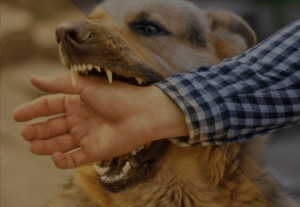How a Los Angeles Dog Bite Injury Attorney Can Determine Fault
 Dog bite cases are more common than one would think. Because of California’s stance on being a “strict liability” state, the owner is responsible for any damages caused by their pet, even if they were not at fault for the incident. Though it’s not technically their fault that the act occurred, they are liable for the negligence caused by their pet.
Dog bite cases are more common than one would think. Because of California’s stance on being a “strict liability” state, the owner is responsible for any damages caused by their pet, even if they were not at fault for the incident. Though it’s not technically their fault that the act occurred, they are liable for the negligence caused by their pet.
Understanding The Strict Dog Bite Liability Law
California laws are stringent on this matter, while other states, like Nevada, give, more leniency. If the owner knows that the dog is aggressive or has bitten someone previously, then it doesn’t make them any more liable than if they didn’t know. The strict liability makes them responsible either way. While other states don’t always see things in this light, California law takes a firm stance on the matter. A dog attack lawyer in Los Angeles can help a victim know if they have a claim.
Example:
Karen owns a dog named Toby. Toby is a family pet that has never shown any signs of aggression. Karen feels it’s safe to let Toby play in the yard because he is friendly. She uses no restraints and allows him to roam freely. One afternoon, Robert is walking through the neighborhood and passes Karen’s yard. Toby goes into protection mode and bites Robert.
Even though Toby has never been aggressive in any capacity before, the California dog bite law still makes Karen liable for the incident. Robert only needs to prove through medical records that Toby injured him. He also needs to show that he was walking on public property and not in Karen’s yard. If he can show both these things, then Karen must pay for the damages. Even if Toby has never bit anyone before this attack, she is still liable. There still may be some loopholes in the case, which is why it’s essential to consider legal representation.
Negating The Strict Liability In A Dog Bite Case
Using the example above, the case would be entirely different if Robert trespassed in Karen’s yard when he was bitten, or he assumes the risk of the injuries. It gets confusing in these matters, so it’s best to have a knowledgeable lawyer help in these issues.
Under the California Civil Code Section 3342, the law only covers a victim if they are attacked in a private place where they are not lawfully allowed, or they are in a public place. It won’t include anyone that is trespassing on someone else’s property. What is intrusion according to the law? Anyone that goes into or on someone else’s property without an invitation is guilty of this crime. They can go on the property for curiosity or convenience, such as taking a shortcut through the neighborhood.
Example:
Bella and her friend Grace are playing with a soccer ball. The ball went over the fence and into Karen’s property. Bella went over the fence to retrieve her ball, but Karen’s dog, Toby, bit her. Karen is not responsible for Bella’s injuries because she was trespassing on her property. Bella was in her yard for the “purpose of convenience.” The child should have rung the doorbell and asked Karen to retrieve the ball for her. Bella’s parents cannot use a call to action under Section 3342, because their child was trespassing. Her parents may want to call a Los Angeles personal injury lawyer to get help if there are other outstanding issues with this claim.
When it comes to cat bites, the liability standard is not applicable. The only time the owner would be liable is if the cat is known to be aggressive and the owner doesn’t warn visitors, or the cat has bitten before. A lawyer well-versed in dog attack cases can also help with matters regarding cat bites or other domestic animals.
Understanding The “Veterinarian’s Rule”
There are many veterinarians and other professionals that take care of animals in the state of California. They assume the liability of being bitten anytime an animal comes into their place of business. However, there are a few exceptions to the rule. If the pet has an aggressive nature and has bitten before, the owner must tell the veterinarian or technician about this history. Not warning them about the potential of a bite is negligence. This law covers:
- Dog Walkers
- Pet Sitters
- Dog Trainers
- Grooming and Kennel Employees
- Veterinarian Technicians
- Veterinarians
- Any Other Person That Works with Pets on A Regular Basis
A Proper Defense When Your Dog Bites
If your dog bites someone, it is always best to hire an attorney immediately. Depending on the severity of the bite, the victims may ask for a large sum in medical bills and other damages. The best defenses that you can use are the following:
Provocation
If a person provokes the dog and it strikes back in retaliation, then this can be used as a good defense. For instance, if a child is trying to get a ball from the yard and someone’s pet comes at them, hitting it with rocks or other objects can provoke the dog to bite. Any teasing or roughhousing with the animal can cause aggressive tendencies to come out.
Comparative Fault
If a person contributes to the injuries in part or whole, then their case falls under comparative fault. For instance, Jeff leaves his dog Zeus tied up outside in his lawn. Crystal walks by, and Zeus begins to bark and growl at her. Though the dog is showing its aggressive nature, Crystal wants to pet it and tries to calm the pup down. As a result, his teeth penetrate through her skin. Under the comparative fault law, she cannot recover damages because she contributed to the injuries.
Assumption Of Risk
If a person knows that a dog is prone to bite, and they pet or play with the pup anyway, they assume the risk should the dog become aggressive. Let’s assume Ralph brought his furry companion Lulu to the groomer to be bathed and clipped. If Lulu bites the owner, Ralph is not responsible. The assumption of risk would cover him due to the nature of the groomer’s job.
If you or a family member have been injured due to an altercation with a pet, then you should call our law firm to schedule a consultation. These cases are not always cut and dry and having a legal expert is vital. Call (323) 857-9500 to have your claim evaluated.

